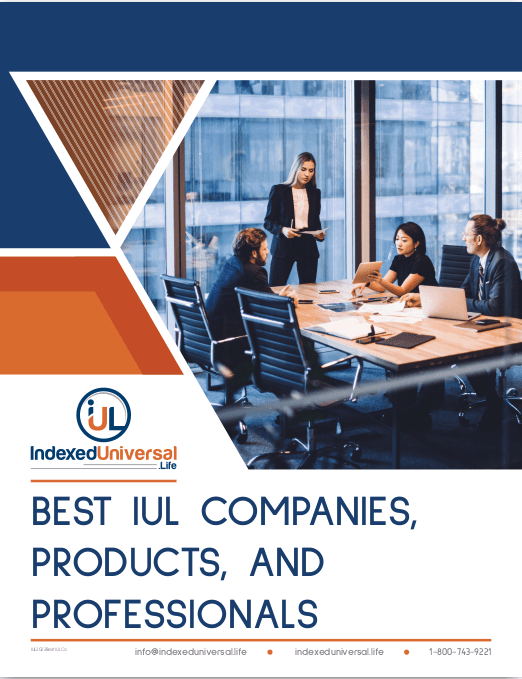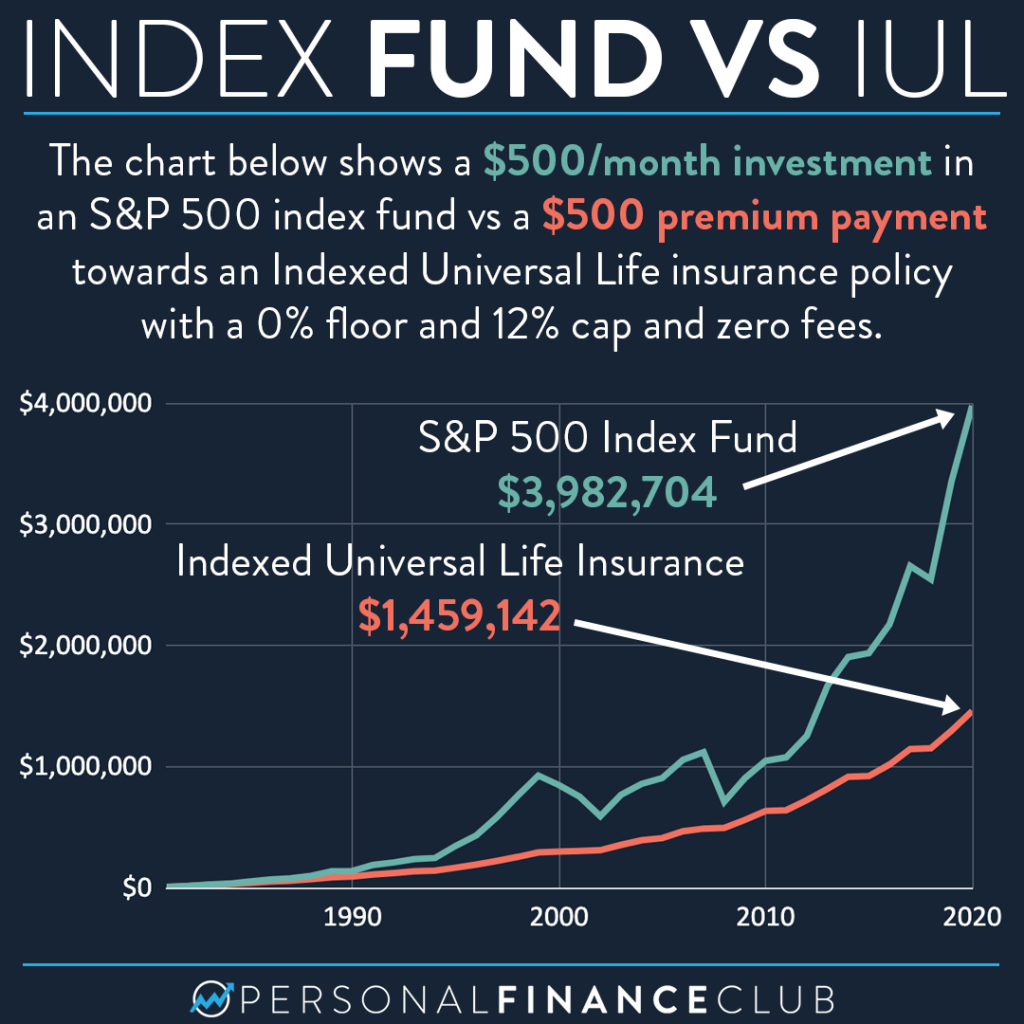All Categories
Featured
Table of Contents
1), often in an attempt to defeat their classification standards. This is a straw guy disagreement, and one IUL folks enjoy to make. Do they compare the IUL to something like the Lead Total Stock Market Fund Admiral Show to no tons, an expenditure ratio (EMERGENCY ROOM) of 5 basis factors, a turnover proportion of 4.3%, and a remarkable tax-efficient document of distributions? No, they compare it to some horrible proactively managed fund with an 8% tons, a 2% EMERGENCY ROOM, an 80% turnover proportion, and an awful record of short-term funding gain distributions.
Mutual funds typically make yearly taxed circulations to fund owners, also when the worth of their fund has decreased in value. Shared funds not just call for income reporting (and the resulting yearly taxation) when the common fund is going up in worth, however can also impose revenue taxes in a year when the fund has decreased in value.
You can tax-manage the fund, collecting losses and gains in order to minimize taxable distributions to the capitalists, but that isn't in some way going to change the reported return of the fund. The ownership of shared funds may need the common fund owner to pay projected taxes (iul illustration example).

IULs are easy to position so that, at the proprietor's fatality, the recipient is not subject to either income or inheritance tax. The exact same tax obligation decrease methods do not function nearly also with common funds. There are various, often expensive, tax obligation traps connected with the timed purchasing and selling of common fund shares, catches that do not use to indexed life insurance policy.
Opportunities aren't extremely high that you're going to be subject to the AMT as a result of your mutual fund circulations if you aren't without them. The rest of this one is half-truths at best. As an example, while it holds true that there is no earnings tax as a result of your beneficiaries when they acquire the proceeds of your IUL policy, it is additionally true that there is no income tax obligation because of your beneficiaries when they acquire a shared fund in a taxed account from you.
Universal Underwriters Life Insurance
The federal inheritance tax exemption limit is over $10 Million for a pair, and expanding yearly with rising cost of living. It's a non-issue for the huge majority of doctors, much less the rest of America. There are far better methods to prevent inheritance tax issues than acquiring investments with reduced returns. Shared funds may cause income tax of Social Safety and security benefits.

The growth within the IUL is tax-deferred and may be taken as free of tax income by means of fundings. The plan owner (vs. the shared fund manager) is in control of his or her reportable revenue, therefore allowing them to reduce or also get rid of the taxation of their Social Safety benefits. This set is wonderful.
Here's one more minimal concern. It's true if you purchase a mutual fund for claim $10 per share prior to the circulation day, and it distributes a $0.50 circulation, you are then going to owe taxes (probably 7-10 cents per share) in spite of the reality that you haven't yet had any kind of gains.
In the end, it's truly concerning the after-tax return, not exactly how much you pay in taxes. You're additionally most likely going to have more money after paying those tax obligations. The record-keeping needs for having mutual funds are dramatically extra complicated.
With an IUL, one's documents are kept by the insurer, copies of annual statements are mailed to the owner, and distributions (if any) are completed and reported at year end. This set is additionally type of silly. Naturally you need to keep your tax records in instance of an audit.
Iul Life Insurance Pros And Cons
Barely a reason to acquire life insurance. Shared funds are frequently component of a decedent's probated estate.
In enhancement, they are subject to the delays and expenditures of probate. The profits of the IUL policy, on the other hand, is constantly a non-probate circulation that passes outside of probate directly to one's called beneficiaries, and is consequently not subject to one's posthumous creditors, unwanted public disclosure, or similar hold-ups and prices.
Medicaid incompetency and life time earnings. An IUL can offer their proprietors with a stream of income for their whole lifetime, regardless of just how long they live.

This is beneficial when arranging one's events, and transforming properties to earnings before a nursing home confinement. Shared funds can not be transformed in a similar way, and are nearly constantly taken into consideration countable Medicaid assets. This is another stupid one advocating that inadequate individuals (you recognize, the ones that require Medicaid, a government program for the poor, to spend for their nursing home) must utilize IUL rather than shared funds.
Index Universal Life Insurance Policy
And life insurance coverage looks dreadful when contrasted relatively versus a retirement account. Second, individuals who have money to acquire IUL above and beyond their retirement accounts are mosting likely to have to be terrible at handling money in order to ever before get approved for Medicaid to pay for their nursing home expenses.
Persistent and terminal illness motorcyclist. All plans will permit an owner's very easy access to cash money from their plan, usually waiving any type of surrender fines when such people endure a significant illness, require at-home care, or come to be restricted to an assisted living home. Shared funds do not give a comparable waiver when contingent deferred sales fees still put on a common fund account whose owner needs to market some shares to money the expenses of such a remain.
Universal Life Ideal
You obtain to pay more for that benefit (rider) with an insurance coverage plan. Indexed universal life insurance supplies death advantages to the recipients of the IUL owners, and neither the proprietor nor the beneficiary can ever lose money due to a down market.
I certainly do not require one after I get to monetary self-reliance. Do I want one? On standard, a buyer of life insurance pays for the real expense of the life insurance benefit, plus the expenses of the policy, plus the earnings of the insurance policy company.
Universal Reinsurance System
I'm not completely sure why Mr. Morais included the whole "you can't shed money" once more below as it was covered rather well in # 1. He simply desired to duplicate the most effective marketing factor for these things I mean. Again, you don't lose small dollars, but you can lose real bucks, as well as face severe chance expense as a result of reduced returns.

An indexed global life insurance policy policy proprietor might trade their plan for a totally different policy without setting off income taxes. A mutual fund proprietor can not move funds from one shared fund business to one more without offering his shares at the previous (hence setting off a taxed event), and redeeming brand-new shares at the last, usually based on sales charges at both.
While it holds true that you can trade one insurance plan for one more, the reason that people do this is that the initial one is such a horrible plan that even after getting a new one and experiencing the very early, unfavorable return years, you'll still come out ahead. If they were offered the ideal plan the very first time, they should not have any type of desire to ever exchange it and go through the very early, adverse return years once more.
Latest Posts
How To Get Out Of Universal Life Insurance
Universal Life Insurance Reviews
Universal Life Insurance Cost Calculator